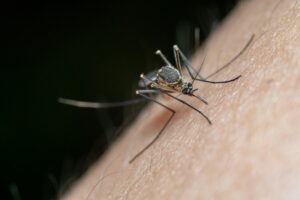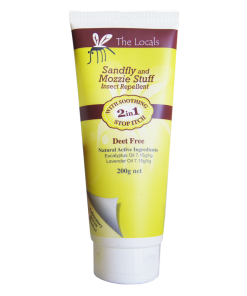Unfortunately, along with the joys of camping in the bush come the bugs, and nobody likes being bitten by mosquitoes, ticks, or other pesky insects. While there are many commercial insect repellents available, many people are turning to natural insect repellents as a safer and more eco-friendly alternative.
We’ll explore the benefits of using natural insect repellents, as shared by us, The Locals, who have tried and tested these natural remedies. Whether you’re planning a camping trip or simply looking to enjoy your backyard without getting bitten, we hope we provide you with valuable information on how to protect yourself from pesky insects using natural and sustainable methods.
Safer for your health
Although chemical insect repellents containing DEET (N, N-diethyl-meta-toluamide) and picaridin have been widely used for many years, they are not without their risks. DEET has been linked to a range of health problems, including skin irritation, neurotoxicity, and even seizures in rare cases due to being either ingested through inhaled air particles or absorbed through the skin. Picaridin, while considered safer than DEET, can still cause skin irritation and allergic reactions. These are also potentially harmful to children and pregnant women. Natural insect repellents, on the other hand, are typically made with plant-based ingredients that are considered safe for use on the skin.
Eco-Friendly
In addition to the health risks, these chemical insect repellents can also be harmful to the environment when they are released into the air or water. With the rise in concerns about the safety of these chemicals, many people are turning to natural insect repellents as a safer and more eco-friendly alternative, as they contain biodegradable and sustainable ingredients that can be disposed of naturally.
Effective against a wide range of insects
While some people may be sceptical about the effectiveness of natural insect repellents, many have been proven to be just as effective as their chemical counterparts. Essential oils such as citronella, lemongrass, and peppermint have been shown to repel mosquitoes and other insects, while natural ingredients such as garlic and vinegar can be effective against ticks.
More Affordable
Commercial insect repellents can be expensive, particularly if you need to use them frequently. Natural insect repellents, on the other hand, can be made at home using simple ingredients such as essential oils, herbs, and vinegar, which are typically much more affordable.
Versatile
Natural insect repellents come in many forms, including sprays, creams, candles, and even plants that can be grown in your garden. This means that you can choose the type of repellent that works best for your needs and preferences.









